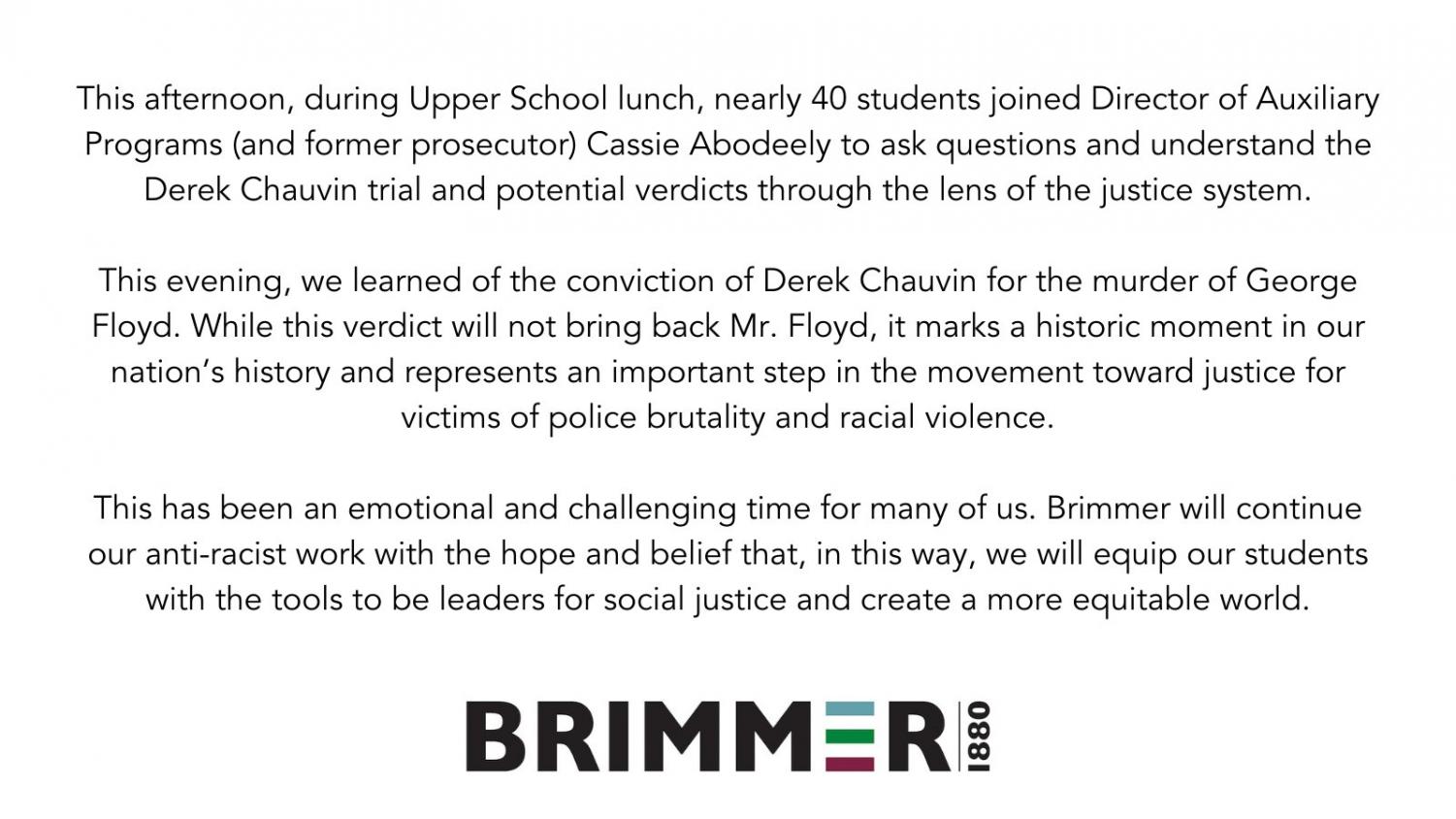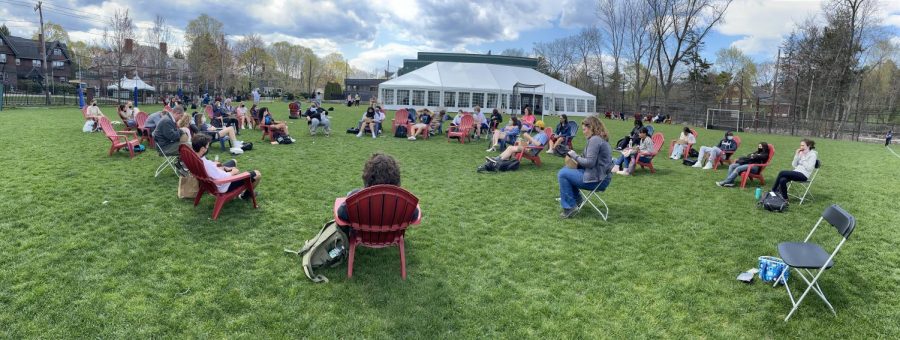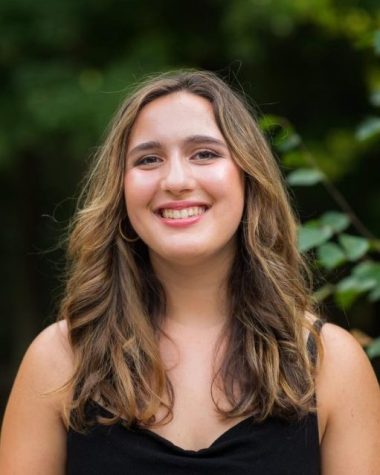Chauvin Verdict Prompts Community Discussion
Students gathered at lunch on Tuesday to discuss the trial.
April 27, 2021
After 10 hours or jury deliberation, Derek Chauvin was found guilty last Tuesday of second degree unintentional murder, third degree murder, and second-degree manslaughter for the killing of George Floyd, giving many here a sigh of relief.
Sentencing will occur in eight weeks for the 45-year-old former Minneapolis police officer, who knelt on Floyd’s neck for over nine minutes. Floyd had also been restrained, laying face down while crying out, “I can’t breathe.”
At an Upper School meeting on Wednesday, Director of Equity and Inclusion Jessica Christian said that the verdict gives her hope.
“We can use the verdict from yesterday as an indication that justice is possible,” Christian said.
Emotions are also running high within the student body. Eleanor Reyelt ’23 is glad that Chauvin was convicted.
“It’s still hard to put into words, but I’m very glad that finally someone has been held accountable,” Reyelt said. “I’m still very sad that it had to be done at the cost of someone’s life.”
Owen Williams ’23 is hopeful that the verdict will lead to better conduct in police forces.
“I think he got exactly what he deserved, and is going to be a great example for other police officers and how they should behave going forward,” Williams said.
Criminal defense attorney Robert Georges, a friend of Director of Summer and Auxiliary Programs Cassie Abodeely, said that the jury decided on the right verdict, calling the case for conviction “not a hard one to make.”

“I think the only reason there was suspense was because of the years of mistrust in the criminal justice system in these kinds of cases,” Georges, who has worked in New York City courts for 15 years, said. “You had the video and other officers testifying what Chauvin did was wrong. None of the charges required proof that Chauvin intended to kill Floyd and I think that was a smart decision to press those charges.”
Chauvin faces up to 40 years in prison for second-degree murder, up to 25 years for third-degree murder, and up to ten years for second-degree manslaughter, according to Georges. All three charges required the prosecution to prove that Chauvin’s actions led to Floyd’s death and that his actions were not reasonable under the circumstances.
Georges noted Chauvin’s record of violence and aggression in the line of duty.
“The DA did a good job avoiding accusing him of intending to kill Floyd outright. He’s on the clock, and people are watching; why would he want to kill him?” Georges said. “But I think that he wanted to really embarrass him, to hurt him and exert power over him, and in doing that, he was ignoring the physical risk he was placing on Floyd, and that’s why they convicted him.”
An experienced defense attorney, Georges also offered his notes on Chauvin’s defense team.
“I don’t think the defense did the best job, because they didn’t really try to humanize Officer Chauvin and spent too much time trying to make George Floyd look bad as a person, and that backfired,” Georges explained. “I think they should have spent more time emphasizing the circumstances and how dangerous police work is in general, you know, something to bring out the other side of it. It didn’t seem like they gave the jury much to think about.”
However, it seems likely that the defense will appeal the verdict, possibly on the grounds of bias based upon comments made by California Congresswoman Maxine Waters, who joined protesters in Minnesota last week.
The trial’s judge, Peter Cahill, has repeatedly condemned past comments about the trial by politicians.
“I’m aware of the media reports, and I’m aware Congresswoman Waters was talking specifically about this trial, and about the unacceptability of anything less than a murder conviction,” Judge Cahill said as the trial closed on Monday. “I wish elected officials would stop talking about this case, especially in a manner that is disrespectful of the rule of law and to the judicial branch and our function.”
Abodeely, a former criminal prosecutor who has taught courses like The Supreme Court and Criminal Law at the School, said she echoes Cahill’s sentiments. Abodeely emphasized the importance of keeping the judicial system independent from politics.
“I’m concerned about these comments because I strongly believe in the independence of the court system,” Abodeely said. “When politicians weigh in on judicial matters, that independence is compromised and undermined.”
On Tuesday, Abodeely held a forum for students to ask questions and learn about the trial, which the school acknowledged in a statement later that evening.

Editors’ Note: The Gator encourages students and faculty to reach out to Cassie Abodeely, who served as a criminal prosecutor for 10 years, if readers have questions regarding the trial.


























































